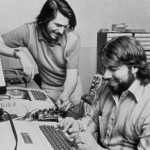 There is an increasing emphasis on collecting and deciphering data and I read an inspiring story recently about a slum in Calcutta whose school kids have put them on the government map in a clever utilisation of data (more of that next time). Data alone, however, will never be enough.
There is an increasing emphasis on collecting and deciphering data and I read an inspiring story recently about a slum in Calcutta whose school kids have put them on the government map in a clever utilisation of data (more of that next time). Data alone, however, will never be enough.
We can collect all the data we want but we still have to connect with our customers on an emotional level. If our product or service isn’t humanised, it will not sell. A customer doesn’t go through a process of saying this might just be useful for me, a customer says to himself, I want this.
Moreover, while individuals are willing to buy consumer products online (books, electronics, laptops) without talking to a salesperson, a recent survey highlighted that 95% of corporate buyers want a salesperson to be involved in the process. They want to engage with people. It is important to balance this with salespeople who help the buyer make better decisions, not be the subject of monotonous sales pitches.
One of my favourite messages is describing how we have moved from a knowledge economy to a thinking economy, because we can find everything we need by searching on Google. But we mustn’t forget that the sparkle in a deal coming together for the benefit of both parties is always underpinned by good relations between the partners.




